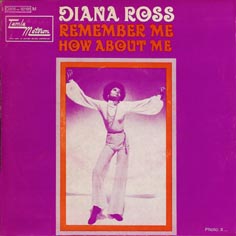Related Research Articles

"(Get Your Kicks on) Route 66" is a popular rhythm and blues song, composed in 1946 by American songwriter Bobby Troup. The lyrics relate a westward roadtrip on U.S. Route 66, a highway which traversed the western two-thirds of the U.S. from Chicago, Illinois, to Los Angeles, California. The song became a standard, with several renditions appearing on the record charts.
"Seems Like Old Times" is a popular song, with music and lyrics by Carmen Lombardo and John Jacob Loeb. The tune was derived from a 1939 song, "It Seems Like Old Times" with music and lyrics by Sam H. Stept and Charles Tobias, recorded by Freddy Martin, Ruby Newman and others.
"I Didn't Know What Time It Was" is a popular song composed by Richard Rodgers with lyrics by Lorenz Hart for the 1939 musical Too Many Girls. Introduced by Richard Kollmar and Marcy Westcott in the stage musical, early hit versions were recorded by Benny Goodman and by Jimmy Dorsey .
It was then performed by Trudy Erwin and Richard Carlson in the 1940 film adaptation produced by RKO. The song was later interpolated into the score of the 1957 film Pal Joey, sung by Frank Sinatra, and has become a jazz standard.
"There Will Never Be Another You" is a popular song with music by Harry Warren and lyrics by Mack Gordon that was written for the Twentieth Century Fox musical Iceland (1942) starring Sonja Henie and John Payne. The songs in the film featured Joan Merrill accompanied by Sammy Kaye and His Orchestra. The song was published in 1942 and is considered a jazz standard. The most popular version, a 1966 Chris Montez recording, went to #4 on the Easy Listening chart and #33 on the Hot 100.
"If I Loved You" is a show tune from the 1945 Rodgers and Hammerstein musical Carousel.
"You're Nobody till Somebody Loves You" is a popular song written by Russ Morgan, Larry Stock, and James Cavanaugh and published in 1944. The song was first recorded by Morgan and was a hit for him in 1946, reaching the No. 14 spot in the charts. The best known version was Dean Martin's, which was released in 1960 and reissued in 1964.

"Since I Fell for You" is a blues ballad composed by Buddy Johnson in 1945 that was first popularized by his sister, Ella Johnson, with Buddy Johnson and His Orchestra.

"Remember Me" is a 1970 single recorded and released by singer Diana Ross on the Motown label and was included on her 1971 album Surrender. The song was released as the album's first single on December 8, 1970 by the label. It was written and produced by Ashford & Simpson. In the US, the song was Ross' third top forty pop hit within a year, peaking at number 16 on the Hot 100 chart and number 10 on the soul chart. It was also Diana Ross' third entry on the Easy Listening chart, where it went to number 20. It gave Diana her third gold single in a year and her third top 10 charting single in Cash Box, peaking at number eight. Overseas, "Remember Me" reached the top ten in the UK, where it reached number seven. It was the lead single from Ross' 1971 album, Surrender.
"Change Partners" is a popular song written by Irving Berlin for the 1938 film Carefree, in which it was introduced by Fred Astaire. The song was nominated for an Academy Award for Best Original Song in 1938, but lost out to "Thanks for the Memory."
"How About Me?" is a popular song written by Irving Berlin in 1928. The song is an expression of sorrow over a love affair that is over. The first recording by Fred Waring's Pennsylvanians was popular in 1928 and the song has subsequently been recorded by many artists.
"The Song Is You" is a jazz standard composed by Jerome Kern with lyrics by Oscar Hammerstein II. It was written for their musical Music in the Air (1932) and sung in that show by Tullio Carminati. In the subsequent 1934 film, the song was recorded and filmed but cut from the final release. An instrumental of the song can still be heard under the opening credits.
"I'll Be Around" is a popular song written by Alec Wilder and published in 1942. It was first recorded by Cab Calloway and his Orchestra in 1942 and the first hit version was by The Mills Brothers in 1943 when it reached No. 17 in the Billboard pop charts. The song has become a well-known standard, recorded by many artists.

"After You've Gone" is a 1918 popular song composed by Turner Layton with lyrics by Henry Creamer.
"Jim" is a popular song with music by James Caesar Petrillo and Milton Samuels, lyrics by Nelson Shawn. The song was published in 1941.
"When It's Sleepy Time Down South", also known as "Sleepy Time Down South", is a 1931 jazz song written by Clarence Muse, Leon René and Otis René. It was sung in the 1931 movie Safe in Hell by Nina Mae McKinney, and became the signature song of Louis Armstrong, who recorded it almost a hundred times during his career. The song is now considered a jazz standard and it has been recorded by a plethora of artists. A popular recording in 1931 was by Paul Whiteman and his Orchestra.
"All of My Life" is a 1944 song composed by Irving Berlin. It was first recorded in 1945 by Bing Crosby whose version reached No. 12 in the Billboard charts. Other chart hits in 1945 were by Sammy Kaye and his Orchestra and by The Three Suns.
"Think It Over" is a rock-and-roll song written by Buddy Holly, Jerry Allison, and Norman Petty in 1958, originally recorded by the Crickets. Vi Petty, Norman Petty's wife, played piano on this recording.
"Just as Though You Were Here" is a song written by John Benson Brooks (music) and Eddie DeLange (lyrics). The first recording was made by Tommy Dorsey and His Orchestra on May 18, 1942 with vocals by Frank Sinatra and The Pied Pipers. It reached the Billboard charts in July 1942, peaking at No. 6 during a ten-week stay. Sinatra recorded the song again on September 24, 1974 for Reprise.
"I'm Thinking Tonight of My Blue Eyes" is the title of a country/folk song by A. P. Carter. A. P. Carter was a collector of old songs and lyrics. I'm Thinking Tonight of My Blue Eyes is one of these old songs he discovered and it is said to be adapted from "The Prisoner's Song" by Guy Massey. The song is a hillbilly folk song, the foundation of early country music. The song became a hit in 1929. The song is a sad tale of a love that had been lost far across the sea, set to traditional English folk music.
Due to the song's popularity and historical importance, many have covered the song, including Bing Crosby, Gene Autry, Burl Ives and The Andrews Sisters. Some artists shorten the title to Broken Ties or Broken Vows or Broken Hearted Lovers. In February 1939 on XET Station, Mexico, Sara Carter dedicated the song to her long lost boyfriend Coy Bayes, who was in California at the time. On February 20, 1939 Sara Carter and Coy Bayes married at Brackettville, Texas. Mother Maybelle used the Carter Family picking on the song, which was new at the time, the bass notes are played with her thumb and she strums with her other fingers. The song was later put on the Carter Family album: My Clinch Mountain Home: Their Complete Victor Recordings (1928–1929). Ralph Stanley in 2006 recorded a complete album of Carter Family songs, including "I'm Thinking Tonight of My Blue Eyes", titled A Distant Land to Roam: Songs of the Carter Family.
"I'll Always Be In Love With You" is a 1929 popular song written by Herman Ruby, Bud Green, and Sam H. Stept for the film Syncopation. The song soon became a hit, with a recording in that year by Fred Waring and His Pennsylvanians charting for 8 weeks, peaking at No. 3. Another recording from that year by Morton Downey charted as well, reaching No. 9. The song has since been recorded many times by artists including Ella Fitzgerald, Benny Goodman, Count Basie, Helen Forrest, Fletcher Henderson, Dinah Shore, and Kay Starr.
References
- ↑ "You've Changed (1942)". jazzstandards.com. Retrieved February 9, 2019.
- ↑ Owens, Thomas (1996). Bebop: The Music and Its Players . Oxford University Press. p. 75. ISBN 978-0-19-510651-0.
- ↑ "secondhandsongs.com". secondhandsongs.com. Retrieved June 9, 2020.
- ↑ Whitburn, Joel (1986). Joel Whitburn's Pop Memories 1890-1954. Menomonee Falls, Wisconsin: Record Research Inc. p. 376. ISBN 0-89820-083-0.